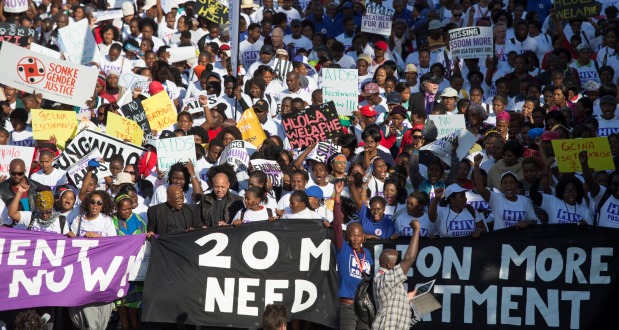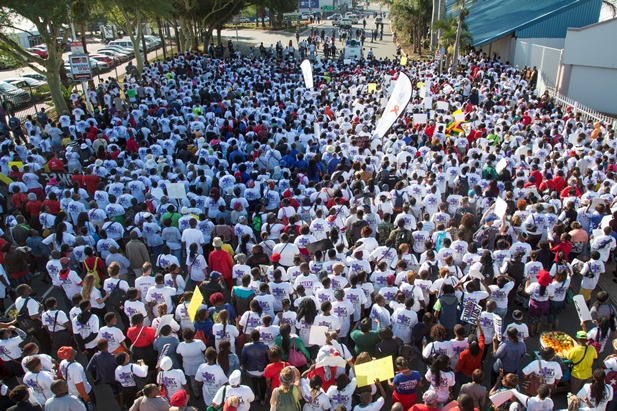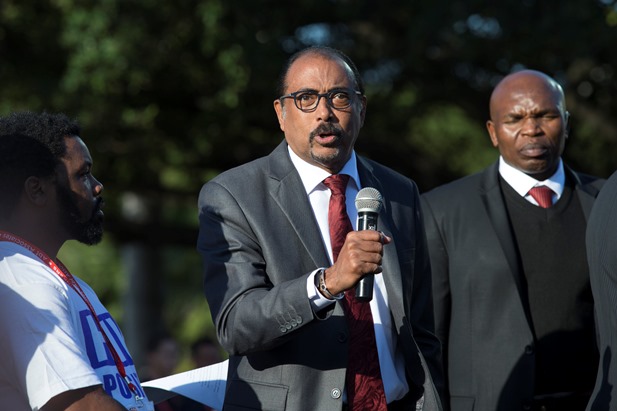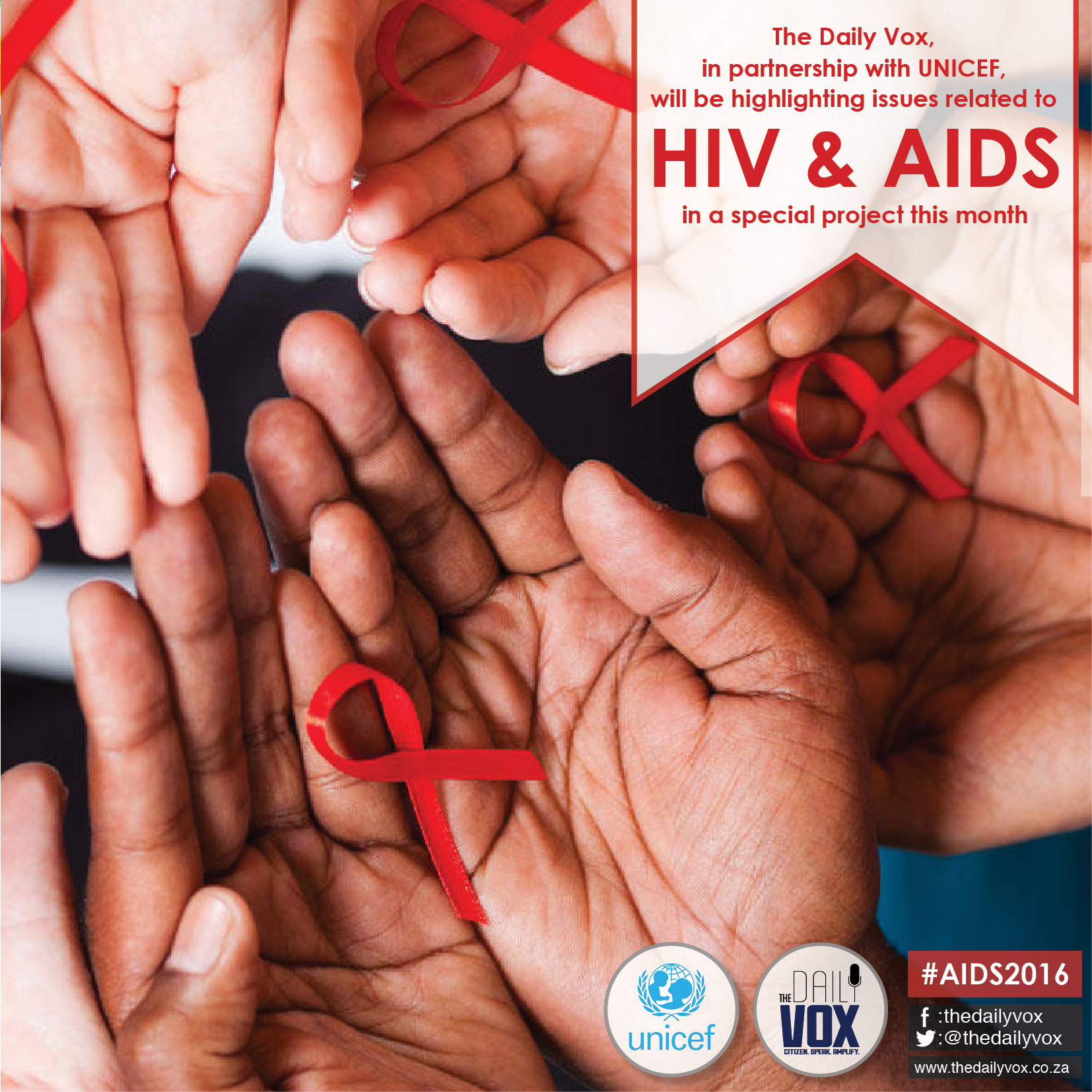
More than 18,000 people opened the International AIDS conference in Durban on Monday, hailing progress against the disease but warning against complacency. Yet millions of people around the world still don’t have access to treatment.

The Treatment Action Campaign (TAC) together with SECTION27 and US-based Health Gap led a march through the streets of Durban on Monday to highlight the need to make antiretroviral treatment accessible to people with HIV across the globe. According to the organisers, 20 million of the 37 million people with HIV do not have access to treatment. This results in over a million people dying from treatable and preventable causes each year.
“Today in South Africa, 440 people will die of AIDS. 440 more will die tomorrow and the next day. 18 people every hour. Our political leaders want to talk about the millions who are on treatment – which is a far cry from the last Durban AIDS conference. But we know that instead we have to tell the truth about the majority who still lack access,†Vuyiseka Dubula, the general secretary of the TAC said in a statement.
Global leaders were criticised by activists for the optimism underscoring their promise to end AIDS by 2030 while there’s been a decline in donor funding and not enough people on treatment.
Memorandums addressing the various demands of the protesters, from donor funding and corruption to functional health systems, were handed over to the people in the respective portfolios and accepted by deputy president Cyril Ramaphosa, Minister of Health Aaron Motsoaledi and UNAIDS executive director Michel Sidibé.

Speaking about the success of the march, Anso Thom from SECTION 27 said the journey to ending AIDS was still far from over and more needed to be done, including increasing accessibility of treatment for people with HIV and an improvement in health systems globally.
“We feel that the work we’ve done has been successful because we’re now hearing a change in tune from UNAIDS about funding,†said Thom, “We’ve asked the recipients of the memorandums to respond and communicate their commitment going forward. We will follow up on these.â€

“If we don’t continue with global solidarity and shared responsibility, we won’t end Aids. We need to call on donors to tell them this is not the time to stop. We’ll have to pay more later if we don’t invest now in the HIV/AIDS response,†he said.
“I’m scared because we’re seeing – for the first time in five years- a reduction in donor government funding for HIV – 13 out of 14 countries have reduced their donationsâ€.








